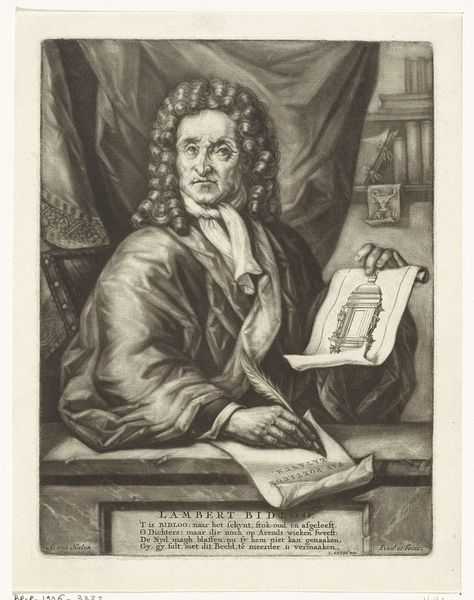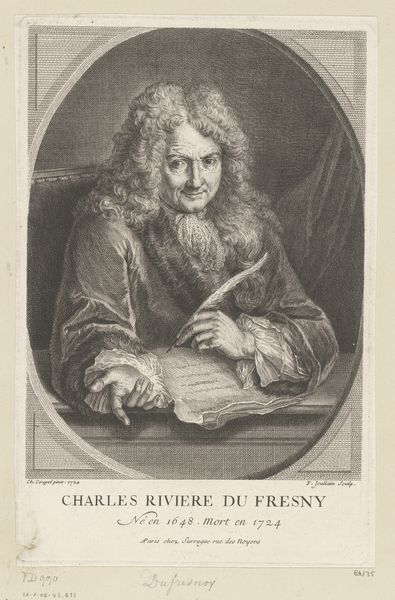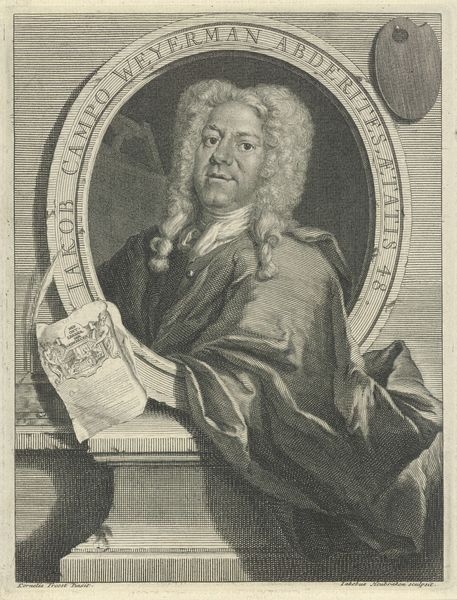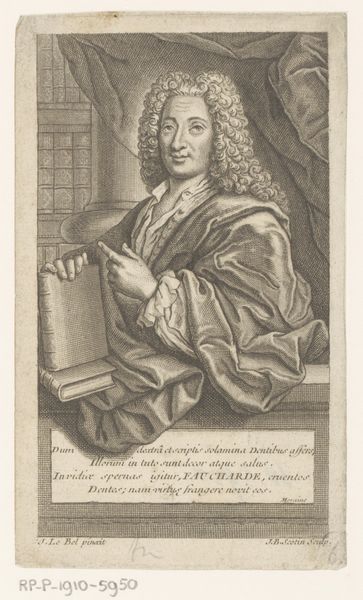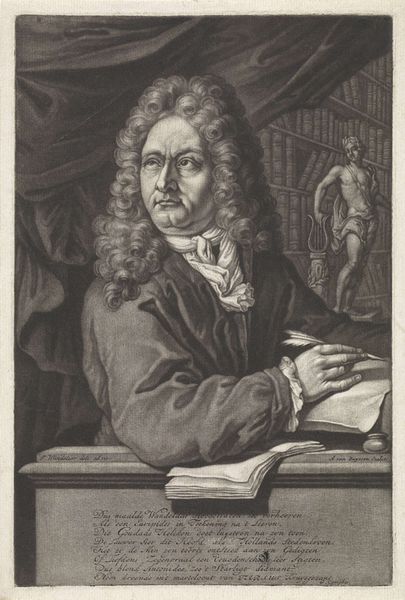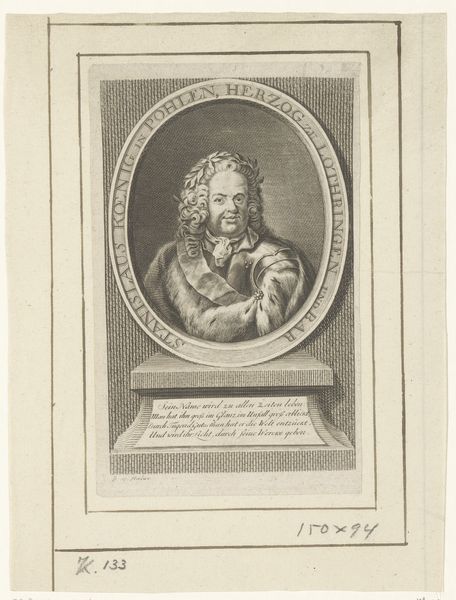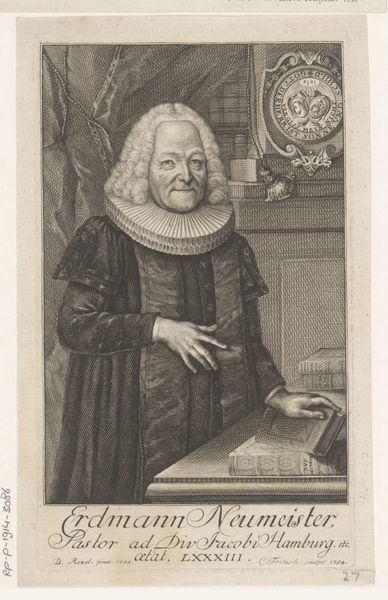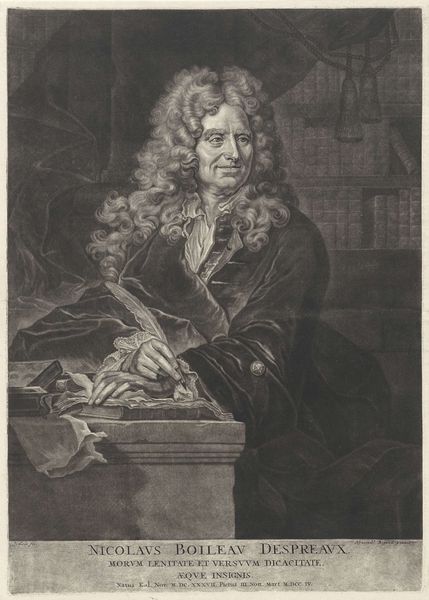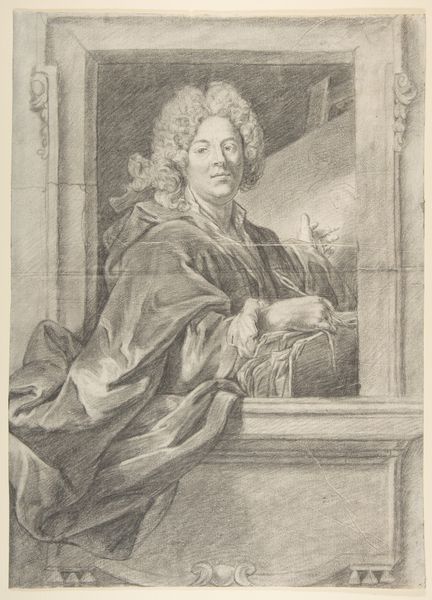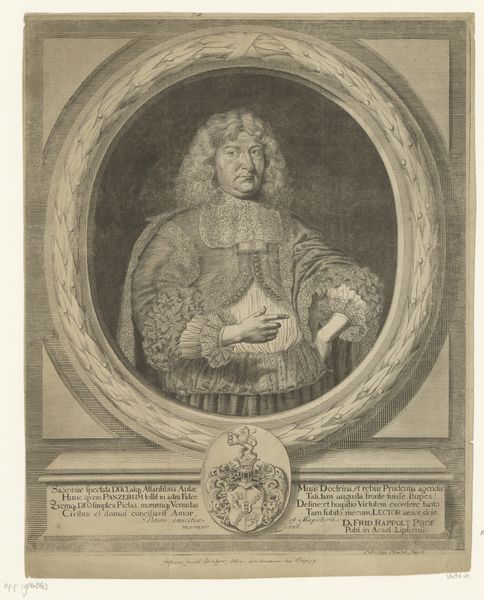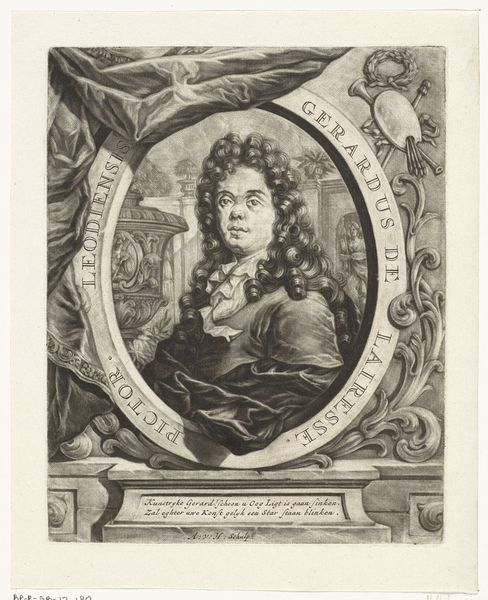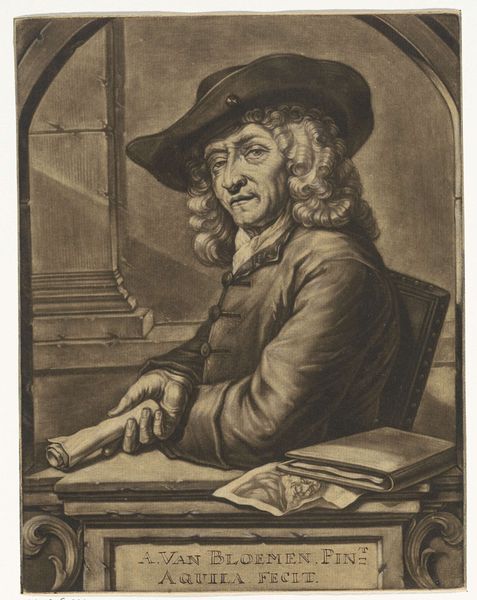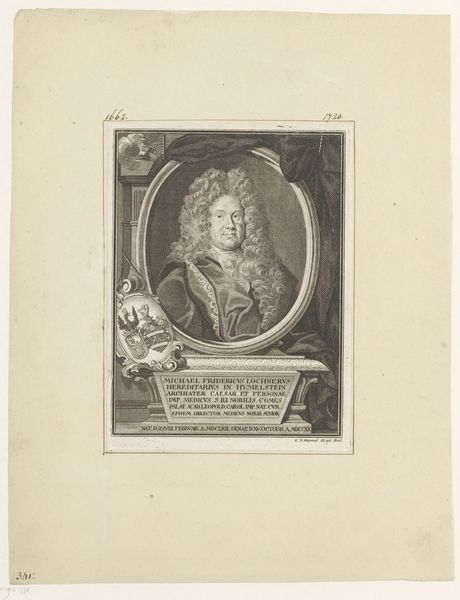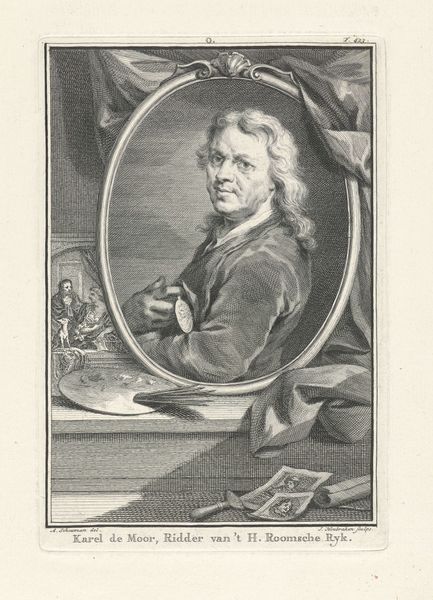
print, engraving
#
portrait
#
baroque
# print
#
old engraving style
#
engraving
Dimensions: height 218 mm, width 139 mm
Copyright: Rijks Museum: Open Domain
This is a portrait of Jakob Campo Weyerman, made by Johannes de Groot II, likely in the mid-18th century, using etching. In this intaglio printmaking technique, the artist would have used a sharp tool to draw into a wax-coated metal plate, before submerging it in acid. The acid bites into the exposed lines, leaving an image that can then be inked and printed. Look closely, and you can see the fine, precise lines that define Weyerman’s features, his elaborate wig, and the folds of his clothing. The very nature of etching, with its reliance on carefully controlled mark-making, speaks to the sitter’s social standing. Weyerman was a writer and art dealer, part of a burgeoning middle class that valued skill, precision, and the intellectual rigor of the Enlightenment. The relative ease of production means prints like these could be more widely disseminated than a unique painting, and a growing consumer market arose to meet them. By understanding the material and the making, we can appreciate how this modest print reflects the social and economic shifts of its time.
Comments
No comments
Be the first to comment and join the conversation on the ultimate creative platform.
